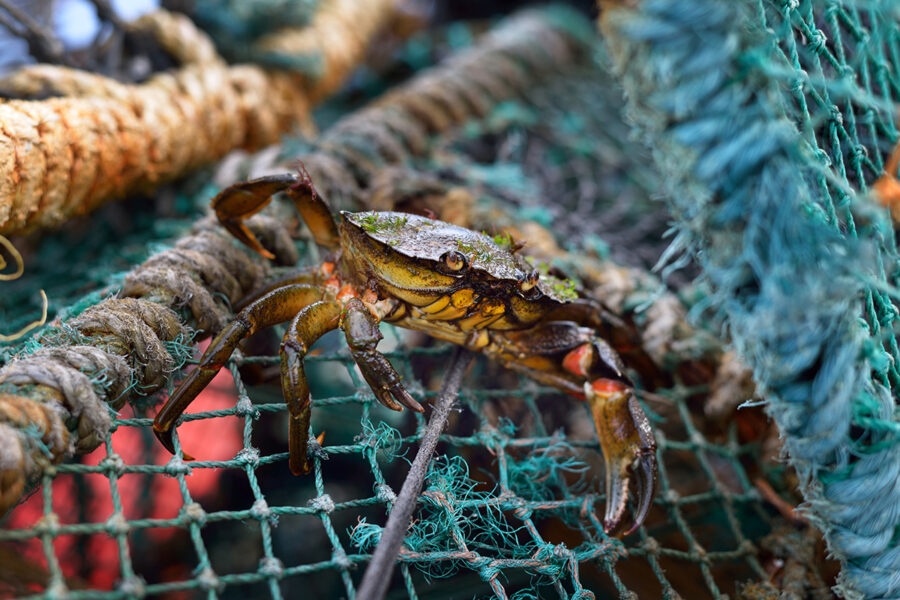Leaders in the shellfish industry have expressed alarm at the way guidelines for the landing and preparation of live crustaceans are being handled by Defra, which they say are moving at pace without expert input from the industry, or impartial scientific advice.
Following the passing of the Animal Welfare (Sentience) Act in 2022, Defra has moved to develop guidelines for crustaceans in line with the Welfare of Animals at the Time of Killing (WATOK) Regulations 2015. The Shellfish Association of Great Britain (SAGB) has warned that if implemented to the letter, this guidance could potentially put large swathes of the shellfish industry out of business.
The move follows the development of industry codes of practice on crustacean welfare, both at sea and ashore. These have been developed by the SAGB and others with advice from scientists and experts, as well as a comprehensive review of similar welfare provisions elsewhere in the world.
Defra has since confirmed that it is developing guidelines for the killing of decapod crustaceans – crab, lobster and Nephrops – both ashore and at sea. The guidelines will apply only to English vessels, and only to activities within 12nm.
The draft guidelines include a suggestion that Nephrops tailed at sea must have their heads macerated to prevent the ‘brain’ of a prawn from feeling pain – but, conversely, recommend a ban on spiking lobsters ashore, to kill any pain receptors in a lobster’s head before it is cooked.
Shellfish retailer and chef Mike Warner, who is chairman of the SAGB and a passionate advocate for UK seafood, told FN: “If applied in the way that certain extremist NGOs are lobbying for, this will devastate the entire seafood chain, from the catching sector through to the retail trade and larger processors.
“At present, Defra seems to have made only token efforts to discuss this with the seafood industry, and instead appears to be kow-towing to some well- funded NGOs for whom eating a crab or lobster is seen as a crime.
“We called a public meeting with Defra and others, including NGOs, last month, as we have seen very little awareness amongst the seafood industry about these developing guidelines, and the impact that they could have on seafood businesses and fishing communities. In many instances, we can see a scenario where a whole swathe of the catering sector switches to imported crab and lobster, simply to avoid being caught up in this.
“What is equally alarming, from the current situation, is the lack of industry engagement, the lack of scientific involvement, and a debate that is being dominated at the moment by ideology, rather than facts.
“We are also asking for a full economic risk assessment to be made as the guidelines are developed – Defra seems to be sleepwalking towards a situation where many fishing communities are going to become unviable, and where tourism is going to take a big hit, without taking any of this into consideration.”
Fishing News spoke to one small retailer who listened in to the SAGB meeting on 17 March, who asked to remain anonymous. He was quite clear that if guidelines were issued requiring him to stun shellfish before slaughter, he would switch to imported frozen lobster for his sales.
“I didn’t even want to ask questions at the event,” he told FN. “There will have been people from the crustacean NGOs participating, and I don’t want my cards marked. I sell 20 lobsters on a good day – it simply isn’t worth the expense of spending £4,000 on a stunner that only takes two shellfish at a time.
“It isn’t just that. If we sell live lobsters, we may be liable to some sort of charge if a customer then falls foul of the rules. It will be much safer and simpler to switch to imported lobster, and not risk any kind of private prosecution from one of the nutters who are only too happy to put people out of business for the sake of ‘protecting’ lobsters.
“The impact will be worse for me with respect to losing crab sandwich sales – but the cost and time involved in stunning a box of crabs a day, plus looking over my shoulder for someone from the animal rights brigade trying to catch me out, just isn’t worth the stress.”
The industry codes of practice for the welfare of crabs, lobster, crawfish and Nephrops and can be downloaded from the SAGB website here.
This story was taken from the latest issue of Fishing News. For more up-to-date and in-depth reports on the UK and Irish commercial fishing sector, subscribe to Fishing News here or buy the latest single issue for just £3.50 here.
Sign up to Fishing News’ FREE e-newsletter here.








